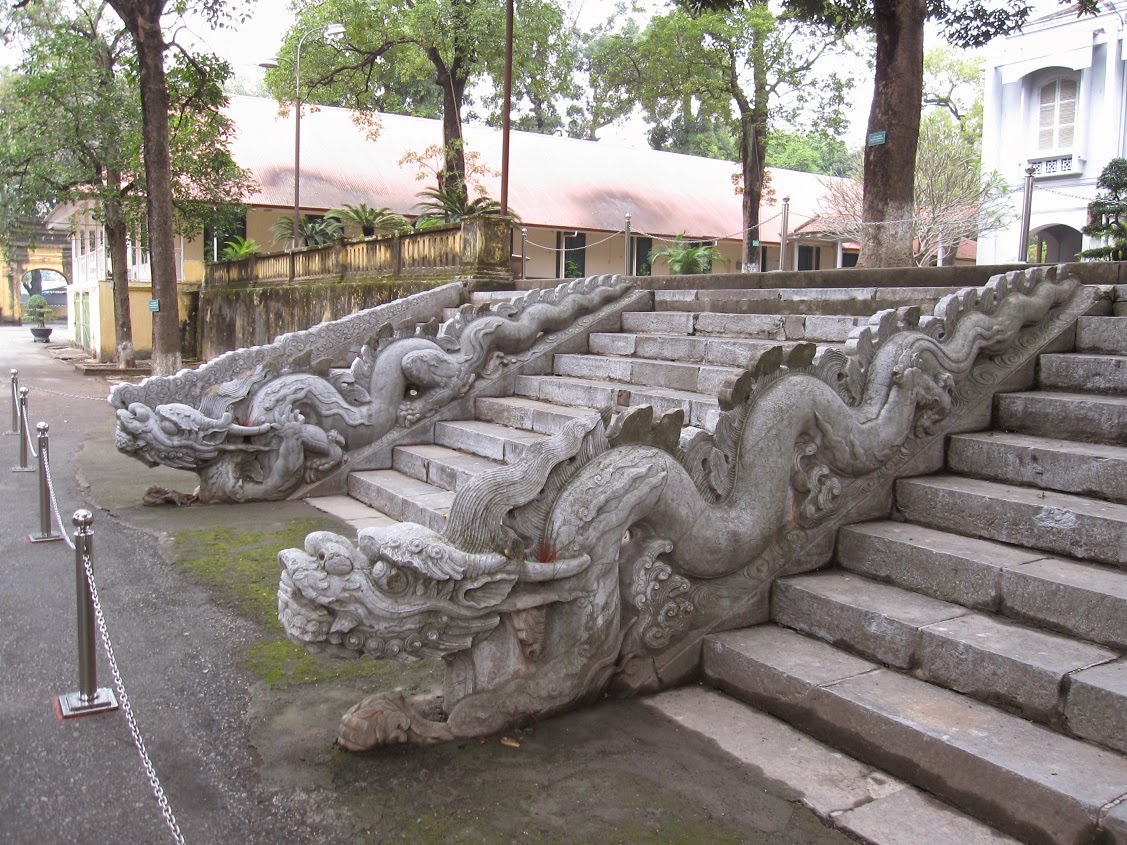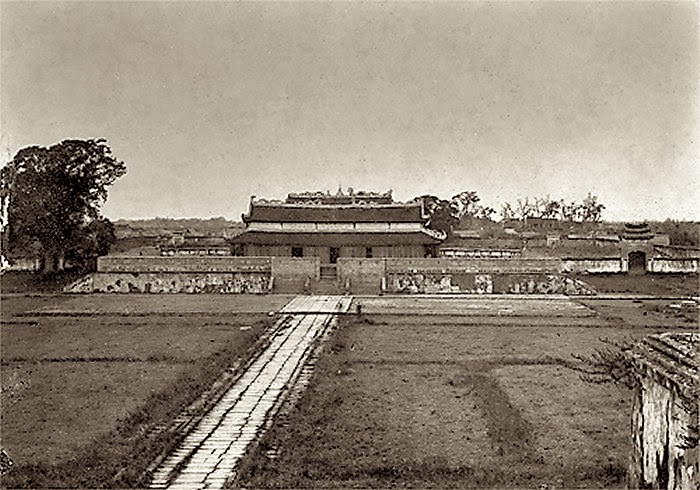
The Thang Long-Hanoi Heritage Preservation Centre and the Vietnam Archaeology Institute started excavating the Kinh Thien Palace site in February, 2014.
In recent years researchers have suggested restoring the palace, but they did not have enough information on the building's original architecture and measurements. Most of it was destroyed by the French in 1886. They left behind only the floor and a staircase bordered by two stone dragons.

[Credit: Gryffindor/WikiCommons]
Scientists said that if they received enough support from concerned agencies, the rebuilding could be started within five years, once enough information on the palace's architecture was gathered. Under the recently approved project, scientists will do more research, design a 3D building plan and submit it to the authority by 2016.
According to Dai Viet Su Ky Toan Thu (Complete Annals of Dai Viet), construction on Kinh Thien Palace began in 1428 under the reign of King Le Thai To and was completed under the reign of King Le Thanh Tong.

period here. (Taken by Doctor Charles – Edouard Hocquard during 1884)
[Credit: Hanoi Heritage Conservation Centre]
The palace is among the most important buildings in the citadel complex and was often used for Le kings' big diplomatic or political events.
After Oct 10, 1954, when anti-French resistance troops took over the city, the site was used as an office for the Ministry of Defence. In 2014 the Ministry gave part of the site to the city's administration.

[Credit: WikiCommons]
The Kinh Thien Palace relic is an essential part of the citadel. Doan Mon (South Gate) and Hanoi Flag Pole are positioned in front of the palace. Behind the palace is the Hau Lau Building and Cua Bac (North Gate). The eastern and western sides of the palace are also bordered with walls and smaller gates.
The stone dragons at the palace's staircase are considered a special piece of architectural heritage, representing sculpture art of the Early Le period.
Source: Bernama [March 16, 2015]